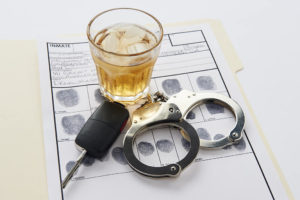What is the 10-Year Step-Down Rule?
Posted September 8th, 2017 by Anthony Carbone, PC.
Categories: Criminal Defense.
 Like many of us, you made a mistake while in college. You got a little tipsy after homecoming one year and was stopped by the police while driving back to your dorm. You were arrested and later charged with a DUI. You faced the penalties and swore that you would never do something that stupid again. And you don’t for about 20 years. Then one night, you were reckless and you got another DUI. Now what? Will you be facing a second offense punishment? Or, since it was a long time ago, will the punishment be a little lighter?
Like many of us, you made a mistake while in college. You got a little tipsy after homecoming one year and was stopped by the police while driving back to your dorm. You were arrested and later charged with a DUI. You faced the penalties and swore that you would never do something that stupid again. And you don’t for about 20 years. Then one night, you were reckless and you got another DUI. Now what? Will you be facing a second offense punishment? Or, since it was a long time ago, will the punishment be a little lighter?
Unfortunately, once you get a DUI in New Jersey, it will follow you throughout your life. This is because a drunk driving offense is considered a traffic violation in New Jersey, not a criminal offense. So unlike committing a crime, which can be expunged from your record within a few years, a DWI will be on your driving record for the rest of your life. However, if you receive another DUI down the road, your previous offense may not result in a stricter punishment.
NJ’s 10-Year Step-Down Rule
In New Jersey, there is something called the 10-year step-down rule. Defined by the New Jersey Appellate Division of Superior Court in 2008, the rule says is if a second DUI offense occurs 10 or more years after the first offense, the court is required to treat the conviction as a first offense for sentencing purposes. The same goes if the person committed a third offense 10 or more years after the second.
So using the scenario above, since it’s been 20 years since your first offense, instead of facing a second offense punishment — which includes fines of up to $1,000, up to 90 days in jail, and a two-year suspension of your license — you will be facing first offense punishment.
However, it’s important to point out the 10-year step-down rule only applies to sentencing purposes. Remember, your first offense is still on your record. So adding another offense could result in issues with your car insurance, applying for a loan, or finding work. And if you receive four or more convictions, the rule will not apply to your case. You will face the maximum punishment.
Arrested for DUI? We Can Help!
If you were arrested for a DUI, it’s best to get a good DUI attorney to help you through the legal process. Contact the Law Offices of Anthony Carbone today for a free consultation of your case.


